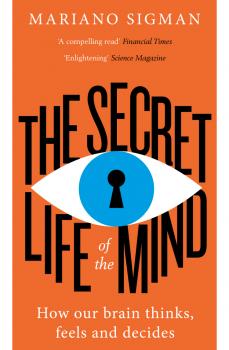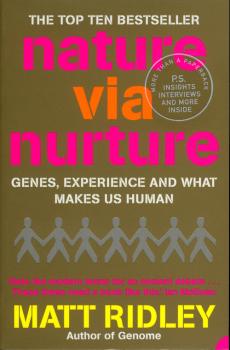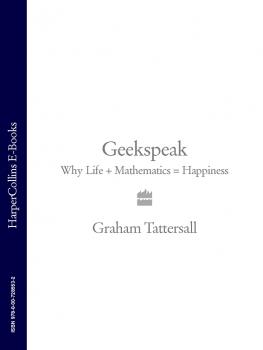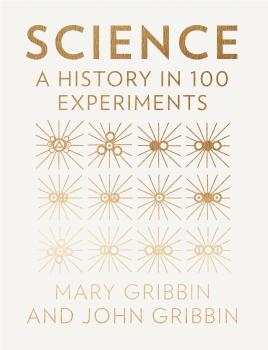Прочая образовательная литература
Различные книги в жанре Прочая образовательная литератураThe Secret Life of the Mind: How Our Brain Thinks, Feels and Decides
In this provocative, mind-bending international bestseller, prize-winning neuroscientist Mariano Sigman reveals his life’s work exploring the inner workings of the human brain.Sigman's ambition is to explain the mind so that we can understand ourselves and others more deeply. He shows how we form ideas during our first days of life, how we give shape to our fundamental decisions, how we dream and imagine, why we feel certain emotions, how the brain transforms and how who we are changes with it. Sigman looks at the development of language, how bilingualism helps us to think and our notions of what is good and fair develop far earlier than we think.Building on his awe-inspiring TED talk and spanning biology, physics, philosophy and medicine as well as gastronomy, magic, music, chess, literature and art, The Secret Life of the Mind revolutionizes how neuroscience serves us in our lives, revealing how the infinity of neurons inside our brains manufacture how we perceive, reason, feel, dream and communicate.
Bad Science
Full of spleen, this will be a hilarious, invigorating and informative journey through the world of Bad Science.When Dr Ben Goldacre saw someone on daytime TV dipping her feet in an 'Aqua Detox' footbath, releasing her toxins into the water, turning it brown, he thought he'd try the same at home. 'Like some kind of Johnny Ball cum Witchfinder General', using his girlfriend's Barbie doll, he gently passed an electrical current through the warm salt water. It turned brown. In his words: 'before my very eyes, the world's first Detox Barbie was sat, with her feet in a pool of brown sludge, purged of a weekend's immorality.'Dr Ben Goldacre is the author of the Bad Science column in the Guardian. This book will be about all the 'bad science' we are constantly bombarded with in the media and in advertising. At a time when science is used to prove everything and nothing, everyone has their own 'bad science' moments – from the useless pie-chart on the back of cereal packets to the use of the word 'visibly' in cosmetics ads. This book will help people to quantify their instincts – that a lot of the so-called 'science' which appears in the media and in advertising is just wrong or misleading. It will be satirical and amusing – exposing the ridiculous – but it will also provide the reader with the facts they need.Full of spleen, this will be a hilarious, invigorating and informative journey through the world of Bad Science.
Placebo: Mind over Matter in Modern Medicine
A lucid and stimulating explanation of how the body’s natural healing mechanisms work – and how they can be triggered in non-chemical ways via the ‘placebo effect’.Can we really cure ourselves of disease by the power of thought alone? Faith healers and alternative therapists are convinced that we can, but what does science say?Contrary to public perception, orthodox medical opinion is remarkably confident about the healing powers of the mind. For the past fifty years, doctors have been taught that placebos such as sugar pills and water injections can relieve virtually any kind of medical condition. Yet placebos only work if you believe they work, so the medical confidence in the power of the placebo effect has provided scientific legitimacy to popular claims about the healing powers of the mind.In this intriguing exploration, Dylan Evans exposes the flaws in the scientific research into the placebo effect and reveals the limits of what can and cannot be cured by thought alone. Drawing on new ideas in immunology and evolutionary biology, Evans proposes a new theory about how placebos work, and asks some searching questions about our concepts of health and disease.
Nature via Nurture: Genes, experience and what makes us human
Acclaimed author Matt Ridley's thrilling follow-up to his bestseller Genome. Armed with the extraordinary new discoveries about our genes, Ridley turns his attention to the nature versus nurture debate to bring the first popular account of the roots of human behaviour.What makes us who we are?In February 2001 it was announced that the genome contains not 100,000 genes as originally expected but only 30,000. This startling revision led some scientists to conclude that there are simply not enough human genes to account for all the different ways people behave: we must be made by nurture, not nature.Matt Ridley argues that the emerging truth is far more interesting than this myth. Nurture depends on genes, too, and genes need nurture. Genes not only predetermine the broad structure of the brain; they also absorb formative experiences, react to social cues and even run memory. They are consequences as well as causes of the will.Published fifty years after the discovery of the double helix of DNA, Nature via Nurture chronicles a new revolution in our understanding of genes. Ridley recounts the hundred years' war between the partisans of nature and nurture to explain how this paradoxical creature, the human being, can be simultaneously free-willed and motivated by instinct and culture. Nature via Nurture is an enthralling, up-to-the-minute account of how genes build brains to absorb experience.Note that it has not been possible to include the same picture content that appeared in the original print version.
Masterminds: Genius, DNA, and the Quest to Rewrite Life
Combining myth, biography, and wit, this is a highly original depiction of cutting-edge science and its profound implications, told through the scientists who are rewriting life on earth.Throughout history, the scientists’ personalities have astonished us. From Galileo to Jonas Salk, they push and stretch society’s boundaries though their great leaps of imagination and originality, providing us with everything from the wheel to rocket ships and penicillin. Today's masterminds in biotechnology promise lifespans up to 400 years, cures for cancer, and an end to pollution. But they are also capable of causing social upheavals with Frankenstein-like nightmare creations, as well as bioweapons.Award-winning writer David Ewing Duncan has written a startling narrative about science and personality, delving into stem cells, cloning, bioengineering, and genetics by telling the stories of the characters at the fulcrum of the science. He uses a unique method of tying in age-old stories and myths – from Prometheus and Eve to Faustus and Frankenstein – to ask the question: can we trust these scientists?
High Tide: How Climate Crisis is Engulfing Our Planet
The No Logo of climate change – a book that shows how global warming is not a theory we should still debate, but something that has already happened on a global scale.Climate change is not a concern for the future. It's happening right now. In this book – based on the latest scientific evidence – the author takes us around the world to show the impact of global warming already being felt in people's lives.From sand-buried houses in China to thawing Alaskan plains, the author witnesses some of the worst effects of climate change at first hand. Some, like the floods in the UK, are near home. Others – like the drowning Pacific island of Tuvalu – are a world away from the exhaust pipes and factory chimneys that are actually causing global warming.But this isn't simply an inventory of disaster, it's a wry look at how people around the globe are coping as their world changes at unprecedented speed. In the process, the author eats whale blubber in Alaska, swims in shark-infested waters off the Great Barrier Reef and struggles to the top of Andean peaks in Peru. An adventure with a conscience and an argument with an urgent purpose, High Tide is an extremely important book.
Geekspeak: Why Life + Mathematics = Happiness
The quirky offspring of ‘QI’ and ‘Freakonomics’, ‘Geekspeak’ melds ingenious statistical analysis with edifying trivia to explain away some curious facts of life.Curiosity is our human birthright, and destiny. As a species we are to prone to think, ruminate, reflect, cogitate, deliberate and philosophise. We do all these things, and why? To explain away the world around us, to find solace in knowledge, to answer all those seeming unanswerables: why are we here? Is there a God? Is there life after death? How many slaves on treadmills does it take to power my kettle?Yes, forget the Bible, ‘Geekspeak’ is the new oracle for 21st century living. Graham Tattersall, a confirmed and superior geek, has rescued maths from the prison of the classroom, imbued it with fresh new life, and put it to use in novel and unexpected ways. His ingenious, deceptively simple formula melds statistical analysis with personal experience and enlightening trivia to explain away some curious and oft-pondered mysteries of the world: how big is your vocabulary, how heavy is your house, do the dead outnumber the living, how powerful is a fly, how fast is a fart.With its recipe of sophisticated mathematical techniques, witty anecdotes and startling amount of learning, ‘Geekspeak’ is an essential tool for impressing friends, sounding intelligent and better understanding the fascinating world in which we live. Maths has a new champion, and the Geeks a new King.
Science: A History in 100 Experiments
A history of science distilled into 100 notable experiments – epic moments that have fuelled our understanding of Earth and the Universe beyond.The history of science is a fascinating and long one, covering thousands of years of history. The development of scientific experiments involves some of the most enlightened cultures in history, as well as some great scientists, philosophers and theologians. As the Nobel Prize-winning physicist Richard Feynman said, ‘If it disagrees with experiment, it is wrong’, the simplest summary of what science is all about. And science is nothing without experiments.Everything in the scientific world view is based on experiment, including observations of phenomena predicted by theories and hypotheses, such as the bending of light as it goes past the Sun. From the discovery of microscopic worlds to weighing the Earth, from making electricity to the accelerating Universe and gravitational waves, this stunning book by renowned science writers John and Mary Gribbin tells the fascinating history of science through the stories of 100 groundbreaking experiments.
50 Ways to F**k the Planet
In a world where we're bombarded with advice on going green, authors Mark Townsend and David Glick take a refreshing line and tell us how NOT to go green. Indeed, they're here to help us f**k up the planet good and proper. And it's easier than you think.An irreverent celebration of environmental doom and gloom, 50 Ways to F**k the Planet takes the 'eco-handbook' in an outrageous new direction, exposing fifty very real and very scary threats facing the world today and showing just how entertaining and easy it is for us to make them worse.Forget the future. Why expend our energy on a lost cause? This is the defeatist (but not altogether unrealistic) stance taken by Townsend and Glick as they revel in the dire fate of our planet. Combining bleak facts with hilariously ironic commentary, the authors applaud our environmental incompetence and stick two fingers up at the whole damn thing. Punctuated with checklists and handy hints to f**k things up faster, this book is for those who want to stop pretending they are responsible world citizens and just get with the party. How much you get involved is up to you, but don't be fooled into thinking that doing nothing is any better.From the familiar honeybee, whose dwindling numbers have huge repercussions on our food chain, to the environmental implications of the smoking ban, the topics cover endangered species and declining terrain as well as social (mis)conduct and the devastating effects of commerce. Outspoken and unabashedly brazen, this is your ultimate countdown to the end of the world.
Wonders of the Solar System Text Only
The Sunday Times BestsellerIn Wonders of the Solar System – the book of the acclaimed BBC TV series – Professor Brian Cox will take us on a journey of discovery where alien worlds from your imagination become places we can see, feel and visit.The Wonders of the Solar System – from the giant ice fountains of Enceladus to the liquid methane seas of Titan and from storms twice the size of the Earth to the tortured moon of Io with its giant super-volcanoes – is the Solar System as you have never seen it before.In this series, Professor Brian Cox will introduce us to the planets and moons beyond our world, finding the biggest, most bizarre, most powerful natural phenomena. Using some of the most spectacular and extreme locations on Earth, Brian will show us Wonders never thought possible.Employing his trademark clear, authoritative, yet down-to-earth approach, Brian will explore how these previously unseen phenomena have dramatically expanded our horizons with new discoveries about the planets, their moons and howthey came to be the way they are.









